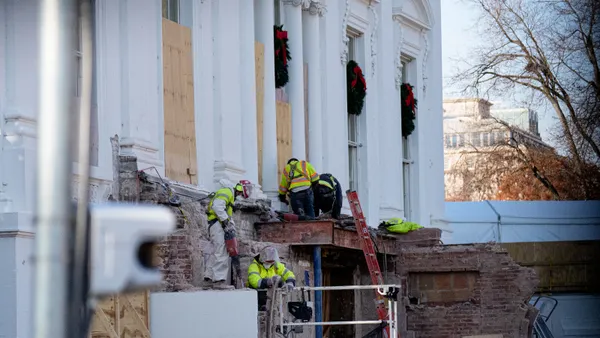Dive Brief:
- The California Building Industry Association, along with the Pacific Legal Foundation, announced they have filed a petition asking the U.S. Supreme Court to review San Jose's affordable housing law, which the state Supreme Court upheld in June.
- Building industry lawyers claim the law, and similar ones in other California cities, represent an unconstitutional "taking" of property. They argue the city of San Jose hasn't legally established a connection between the affordable housing problem and the new homebuilding industry.
- The law mandates that in new-home communities of 20 or more units, the developers must offer 15% of those units at below-market rates. Developers can choose to opt out of the requirement by paying a fee, which industry groups estimate at $122,000 per home. The CBIA first brought the lawsuit against the city five years ago.
Dive Insight:
About 170 California cities and counties have adopted similar laws to the San Jose affordable housing requirement. Housing inventory is tight across the country, but particularly in California, putting upward pressure on home prices. Some cities have tried to spur the construction of more affordable housing by making it a condition of a building permit.
Builders claim these laws will result in developers transferring the added cost of building below-market rate units to buyers of new homes — causing home prices to spiral even further out of control.
But affordable housing advocates have said the mandates are necessary to ensure more affordable housing becomes available. The California case is especially crucial, as the state is often considered a model for affordable housing laws, which encourage the construction of such units in both greater quantities and in more varied locations.
The U.S. Supreme Court will now decide whether it will accept or reject the case.
San Jose officials have said they are certain that if the Supreme Court does review the law, it will uphold it. "We're confident the U.S. Supreme Court will agree with hundreds of cities like San Jose that have crafted inclusionary ordinances as a lawful and effective means to create affordable housing at a time when thousands of hardworking San Jose families face a crisis of spiraling rents," Mayor Sam Liccardo said.










